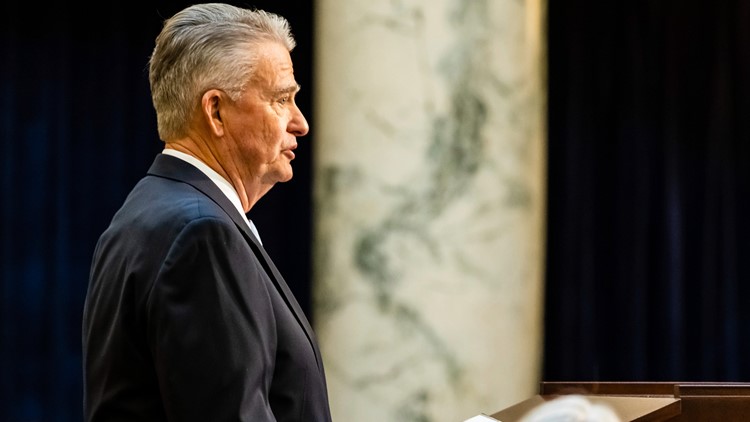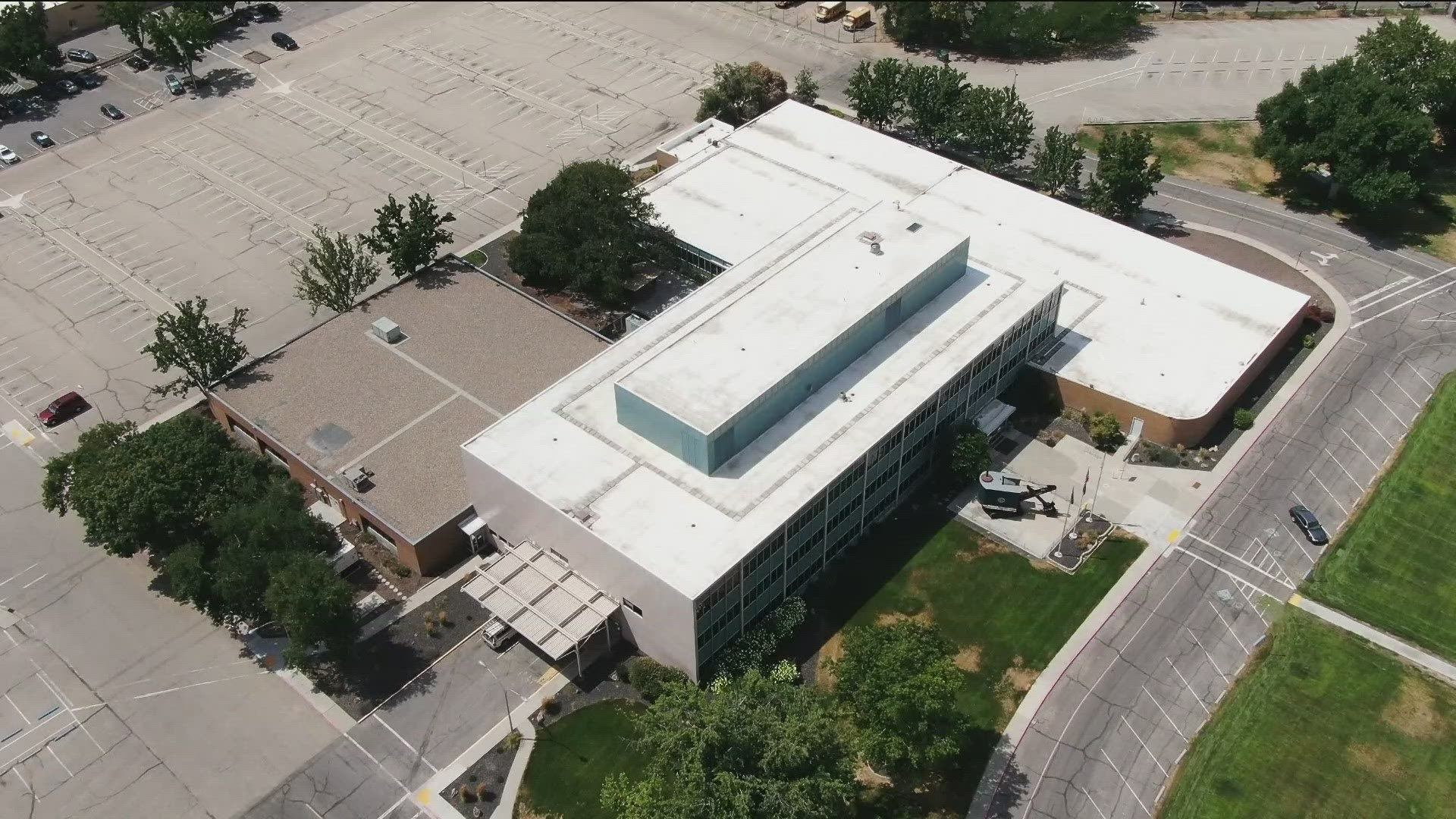BOISE, Idaho —
This story originally appeared in the Idaho Press.
Controversial legislation to change the Idaho Judicial Council and judge selection in Idaho that lawmakers passed in the waning days of their session was vetoed on Wednesday, and the veto is likely to stand.
Last week, during a Legislative Council meeting, House Speaker Scott Bedke said the House didn't have the votes to override a veto of HB 782, nor would it attempt to. He called for backup plans for a working group or study committee. Rep. Greg Chaney, R-Caldwell, lead sponsor of the bill, said in a letter to Bedke Wednesday that he agreed.
"While I am proud of the work Sen. Lee, Rep. Moyle, and myself did on this issue, pursuing it further in 2022 doesn't seem appropriate," Chaney wrote. He called for the Legislature to join a broad-based study group, as requested by Idaho Chief Justice Richard Bevan in a Feb. 28 letter, to "look at the issue of judicial recruitment, retention, and appointment more closely in the interim with the intention of making thoughtful, reflective recommendations."
The courts, which opposed HB 782, announced the study group to include judges, legislators, attorneys and members of the public.
The bill combined small raises for judges, just 2% for district court judges and Supreme Court justices and 5% for magistrates, with changes to the Idaho Judicial Council, including expanding it from seven to 11 members and having the governor appoint 10 of the 11; he currently appoints three of the seven. It also would have allowed the governor to reject a slate of nominees from the council for a judge opening and demand an all-new one with no repeats.
The Senate has a separate bill just granting raises to judges next year still pending on its calendar; lawmakers plan to reconvene at 11 a.m. Thursday.
Lawmakers already have approved raises for all other classes of state employees for next year, including roughly 7% average raises for most state workers. That includes 3% across the board and an average of $1.25 per hour in merit increases.
Gov. Brad Little, in his veto message, wrote, “My office stands ready to support future efforts to modernize and improve the process by which Idaho fills judicial vacancies. I encourage my friends in the judicial and legislative branches to collaborate and identify areas of compromise that will increase transparency, preserve impartiality, and improve judicial recruitment.”
He noted that both as governor and previously as lieutenant governor, he’s participated in “dozens” of judicial appointments over the last decade.
"I have seen first-hand that our judges value our way of life and endeavor to interpret Idaho law consistent with its plain meaning," Little wrote. "I agree with the legislative sponsors of this bill that there is a need to modernize the Judicial Council. There were components of HB 782 I supported, but I think it is in Idaho's best interest to spend more time properly vetting these changes with all relevant stakeholders."
Some lawmakers were angry at the courts this year because of the Idaho Supreme Court's ruling last year invalidating an unconstitutional anti-initiative law that lawmakers passed, and because the court rejected challenges to a new legislative redistricting plan that is forcing some sitting lawmakers to face off in the primary. Others were upset that former longtime Senate Majority Leader Bart Davis wasn't appointed to the Idaho Supreme Court last spring, when the council submitted an all-female list of three nominees to the governor. He appointed current Justice Colleen Zahn.
During the House debate on HB 782, Rep. Mike Moyle, R-Star, co-sponsor of the bill, charged that judicial appointments are being made “in the dark of night,” because judges retire before the end of their terms, and the Judicial Council vets nominees to the governor for appointment. Then, when those appointees stand for election the next time around, they’re incumbents.
But Rep. Gary Marshall, R-Idaho Falls, countered, “This bill does not fix the problem that it claims to fix,” because that same system would continue. “If there’s any reason for this bill, it must be political,” Marshall told the House. “Someone fears that our judges are too liberal or something. But I don’t know any Idaho judges that I would consider that way.”
Chaney, in his Wednesday letter to Bedke, said, “I think it appropriate to pause, take a deep breath, and work collaboratively over the interim with our co-equal branches to be sure that we are modernizing the council without upending the neutrality and independence of the judiciary.”
HB 782 passed the House on a 44-24 vote on March 18, which is short of the two-thirds margin required to override a veto. It passed the Senate by a higher margin on March 24, 26-9.
Nate Poppino, court communications manager for the Idaho Judicial Branch, said, "The Judicial Branch remains invested in helping to examine these issues and, as Chief Justice Bevan wrote, in contributing to a complete and thoughtful solution. We look forward to more conversations with people throughout Idaho – the legislative and executive branches, stakeholders across the court system, and particularly the public – about concerns over judicial selection and recruitment, including the changes proposed this session."
Courts also have been experiencing major issues with judicial recruitment, particularly for district judge positions, though they continue to receive numerous applications for magistrate positions.
Poppino noted that members of the public and attorneys interested in participating in the court's “Special Committee on Judicial Recruitment and Selection” have through April 8 to apply. Information on how to apply is on the Idaho Supreme Court’s website, isc.idaho.gov. Legislative leaders have been requested to appoint the legislative members.
This story originally appeared in the Idaho Press. Read more at IdahoPress.com
Watch more Idaho politics:
See all of our latest political coverage in our YouTube playlist:



